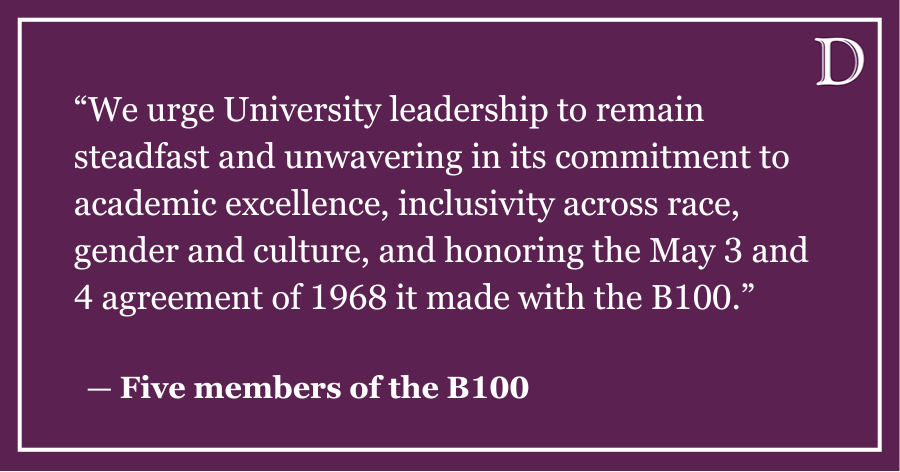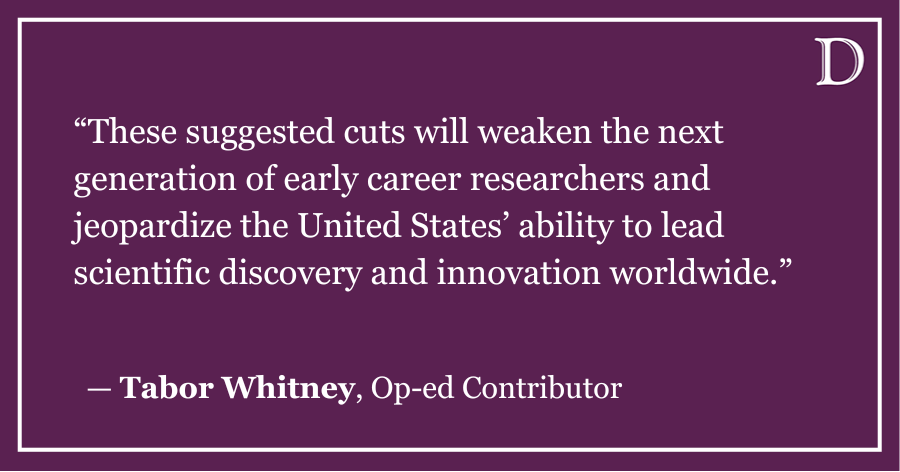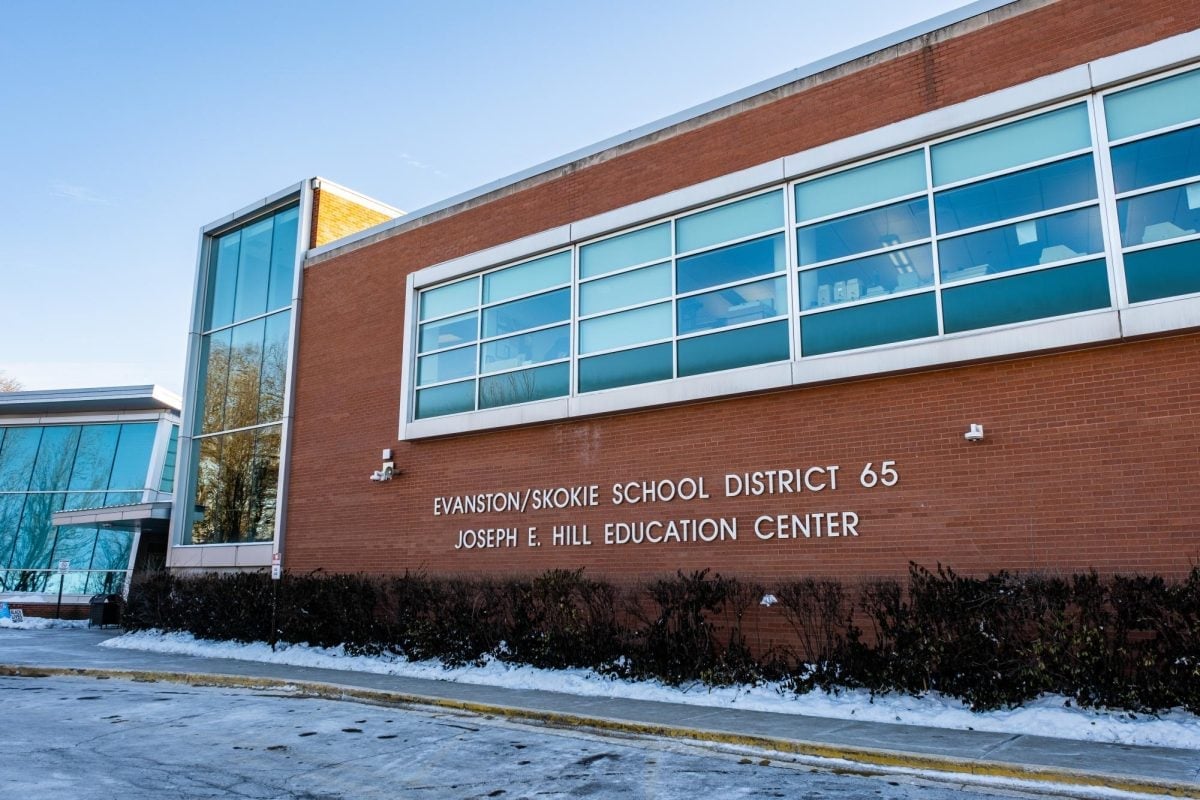President Schill,
On April 17, I learned with relief that our University had decided to “fund research that is subject to stop-work orders or the federal funding freeze.” I hoped that would be the beginning of more reassuring gestures from your office. More specifically, I hoped that Northwestern would, like Harvard University, stand up more assertively to the dictatorial overreach of the Trump administration. I haven’t seen much.
We can imagine why Trump’s attacks on universities have come in phases. His administration, which usually floods the zone with so much flagrant activity that critics can hardly react, could have issued stop-work orders to all universities at once.
Yet, like a predator, it isolated and attacked a few at a time, starting with big targets as if to send a message to the smaller ones. Such a tactic makes victims feel helpless while silencing future targets with the hope of a softer blow, if not mercy. Thus, they become complicit through their silence.
Pastor Martin Niemöller looked the other way when the Nazi party attacked socialists, trade unionists and Jews, hoping Hitler would never come after Christians and their church. By the time he realized they were only saved for last, it was too late. Niemöller lived a life of regret, which is documented in his confession-like lectures popularly known as “First they came for…”
History warns us against appeasing bullies. In 1935, when Benito Mussolini invaded my country, Ethiopia, officials in the British and French governments thought the African nation (a sovereign member of the League of Nations, just like Italy) should be sacrificed to maintain peace in Europe.
The Hoare-Laval Pact, named after its architects — British Foreign Secretary Sir Samuel Hoare and French Prime Minister Pierre Laval — essentially volunteered “two-thirds of Ethiopia to the Italians,” hoping it would stop Mussolini from allying with Hitler. It did not work.
Instead, Hitler took note. A year later, he invaded the Rhineland. Then Austria. Then the Sudetenland. Prime Minister Neville Chamberlain’s appeasement policy was cheered as pragmatic.
Only a few, such as Winston Churchill, knew these aggressions were only the beginning. They knew that bullies wouldn’t stop unless they were stopped. They knew the appetite of the pathological predator couldn’t be satiated through appeasement. If anything, appeasement only reveals whom or what the appeaser considers sacrificable.
When I saw NBC’s report reading, “Over 150 college presidents sign letter rebuking ‘government overreach,’” I hoped to see your name attached. By the time I opened “A Call for Constructive Engagement” on the afternoon of April 22, over 210 leaders of U.S. academic institutions had signed it. Your name was absent.
Only much later did your signature appear, joining nearly 270 others. The Daily Northwestern kindly observed, “Schill’s signature appeared a few hours after the statement’s initial release.”
Why the wait? Why would one of the wealthiest and highest-ranking universities in the world wait for hundreds of others to show their cards before revealing its own?
Apparently, while other universities were speaking truth to power, ours was busy intimidating its vulnerable students, threatening those who do not complete a twisted “anti-bias training” with “University action, including a registration hold.”
The differential potency of this threat becomes legible only when we consider what a “registration hold” can mean for international students. A hold on registration could eventually result in a loss of full-time enrollment status. And federal immigration regulations stipulate that F-1 and J-1 visa holders “who are not enrolled full time … violate their student immigration status.”
Thus, to secure a marginally less precarious existence, we must watch the University’s biased “anti-bias training,” which insists that phrases such as “coastal elites” are euphemisms for Jews. We hear that phrase in conservative public spheres every day. U.S. Sen. Ted Cruz (R-Texas) called Democrats “the party of coastal elites” in a Fox interview. Yet, in the wrong mouth and on the wrong campus, it could be considered antisemitic. If we reject this absurdity, we can legally be sacrificed at the Trump altar.
As Wesleyan University President Michael Roth, a Jewish historian, rightly points out in a New York Times essay, “Jew hatred is real, but today’s anti-antisemitism isn’t a legitimate effort to fight it. It’s a cover for a wide range of agendas that have nothing to do with the welfare of Jewish people.”
In an interview with Christiane Amanpour, Roth explained that it was “the outrageous arrest and threatened deportation of international students (that) really made me stand up and write.” He added, “We don’t want to see our students living in fear of their own government.”
What are you doing to ease our fears, President Schill?
As co-president of the African Graduate Student Association, I hear fellow African students’ fears every day. At an April 17 rally on NU’s campus, many students spoke of their fears — fears of being doxed, deported and sacrificed — because they do not feel protected by their University.
Speak up, President Schill. Show us that you’ve got our back as we navigate these uncertain times. In times of injustice, silence is not prudence; it’s complicity.
On June 30, 1936, when the League of Nations turned its back on my country to appease Mussolini, our Emperor Haile Selassie I warned the congregants in Geneva that “God and history will remember your judgment.”
How do you want history to remember yours?
Behailu Mihirete is a third-year Ph.D. student in the Rhetoric, Media, and Publics program of the School of Communication. He can be contacted at [email protected]. If you would like to respond publicly to this op-ed, send a Letter to the Editor to [email protected]. The views expressed in this piece do not necessarily reflect the views of all staff members of The Daily Northwestern.

















